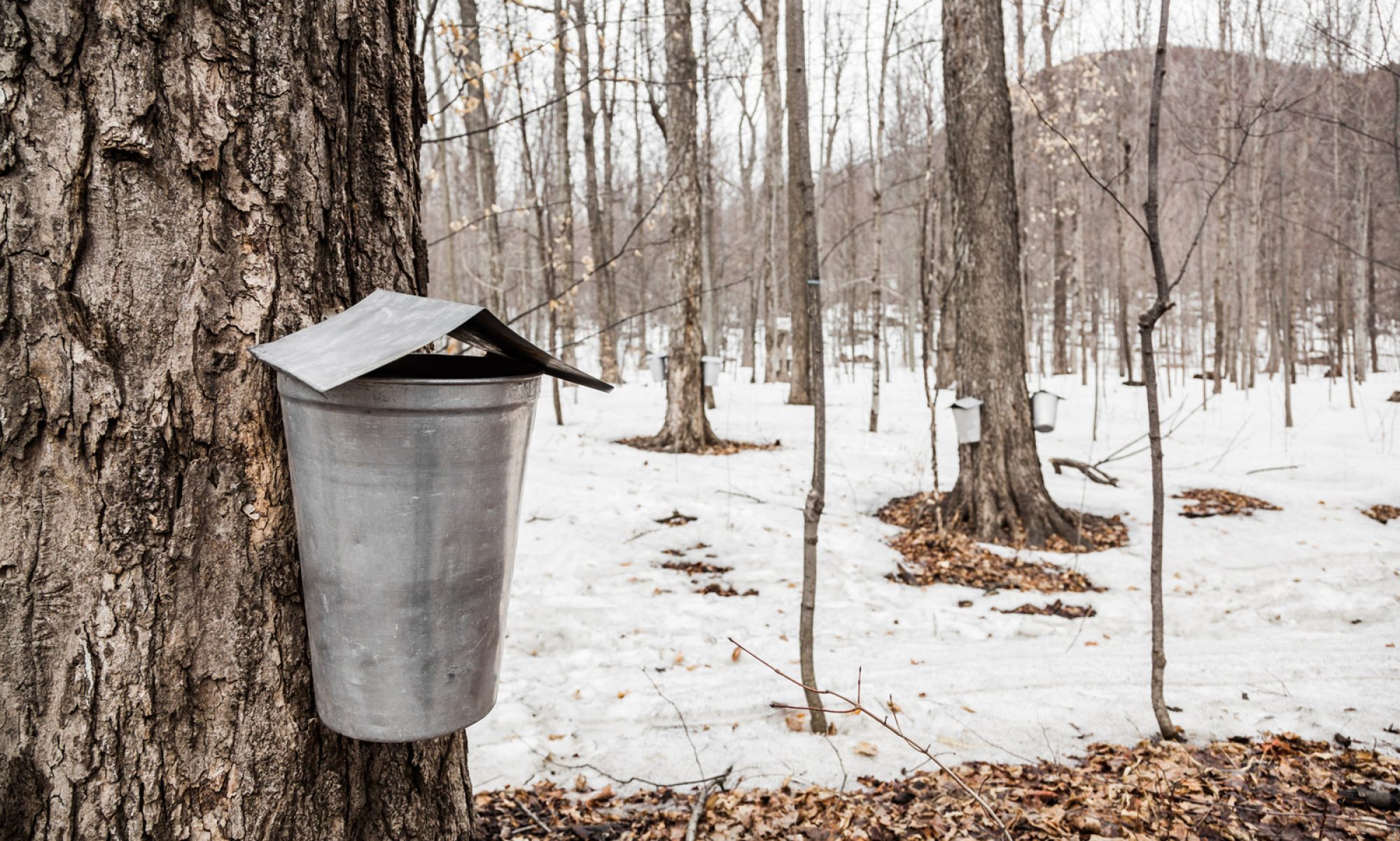Maple is a unique agricultural product used to create some delectable creations and useful products. But did you know that maple is also a sustainable product and can have a positive impact on the environment? Let’s take a look at the sustainability of maple production.
Maple is a sustainable product because of its natural production process. Real Maple syrup is not a product that can be produced year-round. Maple production takes place in late winter and early spring when cold nights and mild days cause sap within the tree to freeze and flow. When temperatures remain above freezing as the weather progresses into spring, sap continuously flows and the sugar content decreases, making it unsuitable for maple syrup making. Therefore, the season naturally comes to an end. During the summer months, maple trees generate sugar through photosynthesis. This sugar helps the trees’ cells breath, promotes growth, and gets stored in the trees’ roots, preparing the tree for the next sugar season (https://ppaq.ca/en/maple-production/step-by-step-production-maple-syrup/). The seasonal nature of maple production enables maple trees to remain healthy and sustainable, thus aiding the maple industry.
When it comes to the collection of sap during maple season, the method of tapping keeps maple production sustainable. Trees are tapped with spouts that connect to lines of tubing that channel sap to larger containers or directly to the sugarhouse. The carefully inserted taps temporarily “wound” the tree so using the same tap location each year has the potential to cause permanent damage to the tree. Therefore, during each sugaring season, taps are placed in a different location of the tree, which allows for sap collection while letting the previous year’s tap location continue healing. The tap hole takes about 2 years to close fully (https://extension.psu.edu/maple-syrup-production-for-the-beginner). Sugarmakers always seek to find the balance between promoting tree health and production.
Maple promotes sustainability through its many ecological benefits. When it comes to discussions about climate change, carbon capture is often spoken of as a way to combat it. Maple-producing forests, known as sugarbushes, are considered working agricultural land. In certain areas, the sugarbush’s working status protects it from development. While producing maple sap for syrup, these sugarbushes also naturally capture carbon as part of the tree’s respiration processes. The capture of carbon can add up in areas of high maple production. For instance, in Québec where there are around 34 million actively-producing maple trees, approximately 962,200 metric tons of carbon are stored in the trees each year. To put that in perspective, that capture cancels out the carbon released from roughly 290,000 vehicles a year! The presence of sugarbushes also helps regulate air and water quality, benefiting the surrounding plants, animals, and people (https://maplefromcanada.ca/about/environmental-responsibility/).
Another interesting facet of maple’s sustainability is its potential for agroforestry. Agroforestry is a land-use system in which trees or shrubs are grown around or among crop/pastureland. In this case, it is crops that are attempting to be grown in a forest setting. Since maple trees are directly used for only a short time of the year, producers are exploring other ways their sugarbushes can be productive in maple’s off-season. Some producers have experimented with growing crops like mushrooms or nursery plants that grow in more shaded areas within their sugarbushes. There is much interest in the multi-crop opportunities of agroforestry in sugarbushes, and researchers and producers continue to explore the potential of this enterprise (https://blogs.cornell.edu/cornellmaple/, “Episode 8: Sweet Talk about Agroforestry”).
Maple is and continues to find new ways to be a sustainable product that can be enjoyed for years to come.
For further reading, check out these resources: http://www.internationalmaplesyrupinstitute.com, https://vermontmaple.org/, www.puremaplefromcanada.com, https://web.uri.edu/maple/, https://extension.psu.edu/, https://blogs.cornell.edu/cornellmaple/, https://ppaq.ca.

